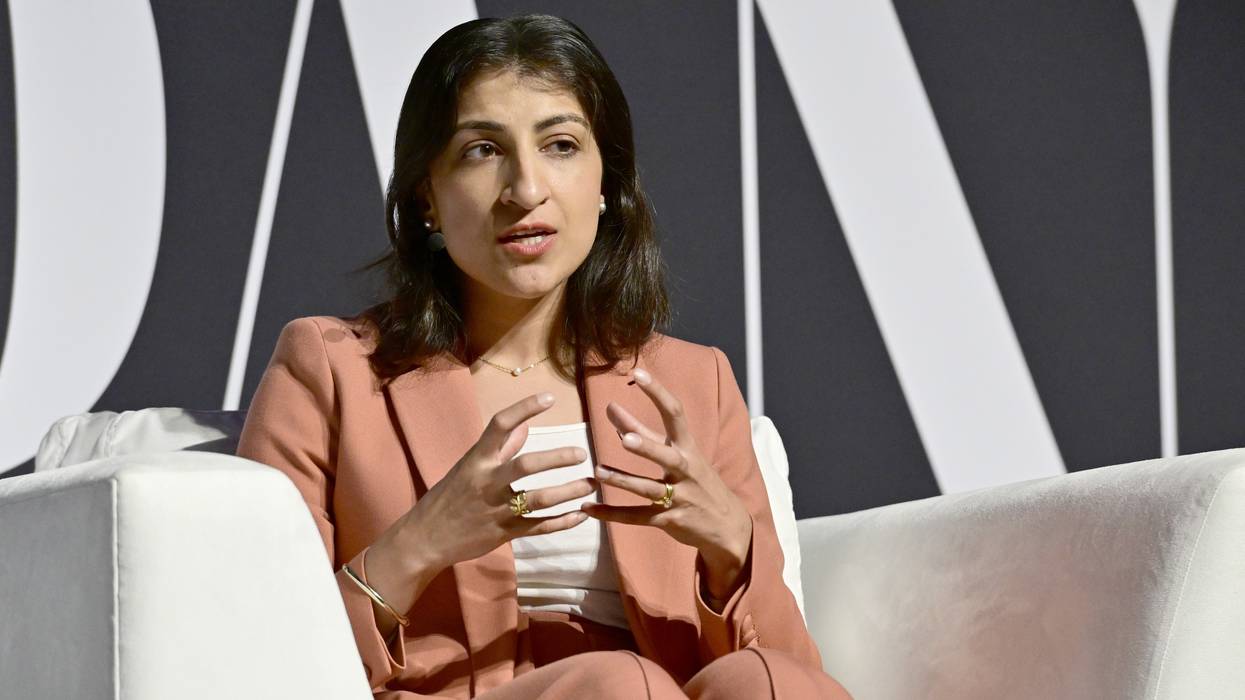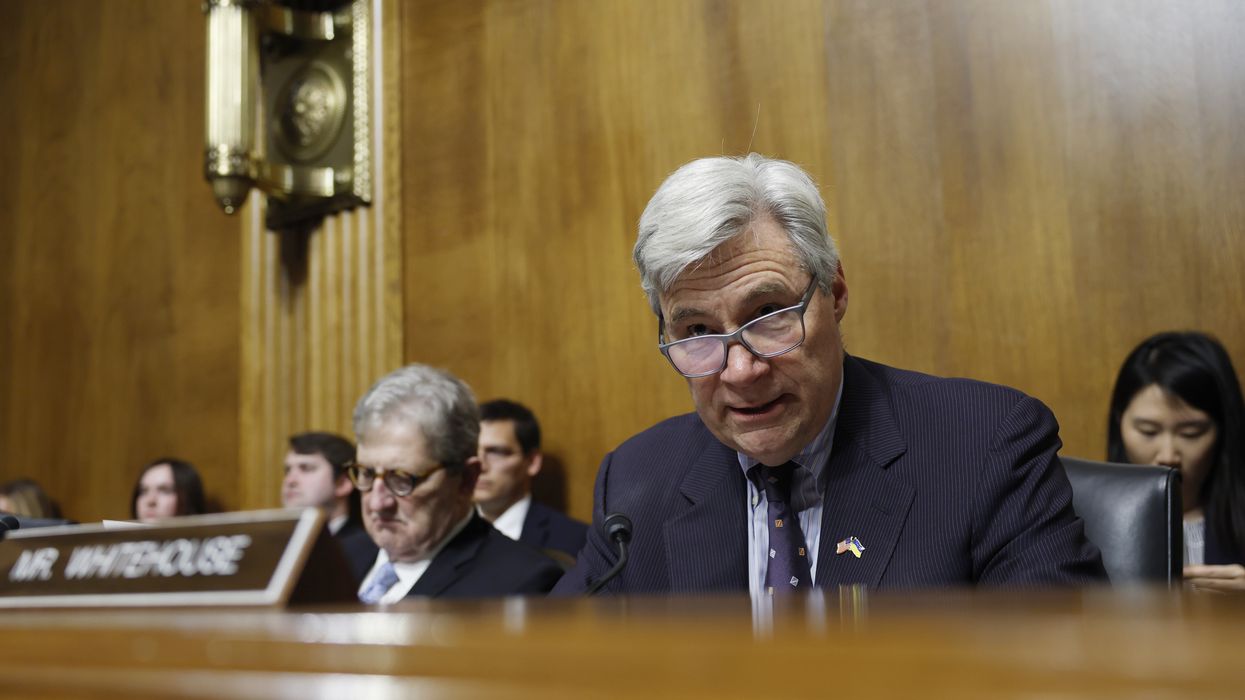Lina Khan Accuses Trump FTC of Trying to Let Oil Exec 'Off the Hook' for Price Gouging Scandal
As FTC chair, Khan stopped a fossil fuel CEO from "cashing in and joining Exxon's board," said one lawmaker. "Now, with Trump bending to the whims of Big Oil, he's considering overturning that punishment."
"So much for America First," said one progressive lawmaker on Monday regarding the Federal Trade Commission's new push to reverse a ban on two fossil fuel CEOs from serving on the boards of ExxonMobil and Chevron—the oil giants that were acquiring their companies.
The FTC is accepting public comments until May 12 on a petition filed by former Pioneer National Resources CEO Scott Sheffield, which would set aside the Biden administration's consent order; finalized days before President Donald Trump took office, that barred Sheffield from serving on Exxon's board.
The order also applied to John Hess, CEO of Hess Corp., which was being acquired by Chevron.
Then-FTC Chair Lina Khan barred the CEOs from becoming board members over concerns that they would collude with representatives of the Organization of Petroleum Exporting Countries (OPEC) to ensure Americans continued paying high oil prices.
Sheffield and Hess both communicated with OPEC officials, including "the past and current secretaries general" of the organization "and an official from Saudi Arabia," according to an FTC probe under the Biden administration.
The two executives and their companies denied the allegations. Republican members of the FTC at the time voted against Khan's ban on the board positions, claiming it overstepped the agency's authority.
But on Monday, Khan urged those who oppose oil price fixing by energy giants to submit public comments on the Trump administration's "proposal to release Sheffield from accountability."
"The FTC is now trying to let this oil executive off the hook," said Khan, a law professor at Columbia University.
Exxon, the largest U.S. oil company, bought Pioneer in a $59.5 billion deal last year. Chevron's purchase of Hess for $53 billion is currently pending during arbitration proceedings.
The FTC's investigation last year found that Sheffield communicated with OPEC about cutting oil production and driving up consumer prices while publicly blaming government policies. One analysis found such price fixing schemes by corporations were to blame for 27% of the inflation spike that American families faced in 2021.
Sheffield pushed to "keep gas prices high so his shareholders could make even more money," said Rep. Mark Pocan (D-Wis.) on Monday. "Lina Khan's FTC prevented him from cashing in and joining Exxon's board. Now, with Trump bending to the whims of Big Oil, he's considering overturning that punishment."


